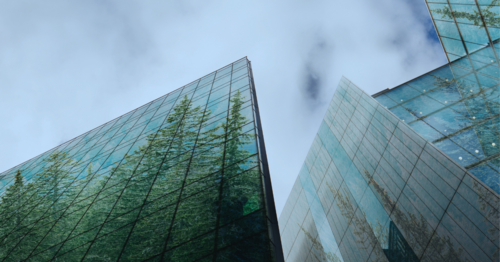In its narrowest definition, the current definition of "sustainability" refers to "development capable of meeting the needs of the present without compromising the ability of future generations to meet their own needs" as defined by the UN in its Agenda for Sustainable Development.
But what is electricity or sustainable energy? It is about employing a source of energy optimizing resources, trying to cause the least possible damage to the planet and spending only what is necessary. This is no easy task, coming from the proportional increase in energy use during the 20th and 21st centuries and the continuous industrial advances.
The ODS2030, a tool for sustainable energy
Given the seriousness of the issue, the UN created in 2015 a guide of objectives to be achieved in a certain period of time, specifically until 2030. These are 17 Sustainable Development Goals, with goals that are individualized and divided by area.
Like the other 16 points in this guide, achieving Affordable and Sustainable Energy (SDG7) is the responsibility of households, industries and the public sector alike. In short, an inescapable task for every individual who makes up today’s society.
At PUK Portacables we work on an international scale and we are committed to universal access to energy, as well as the reinforcement of clean energy research. All this to achieve maximum energy efficiency, as well as the development of renewable alternatives. Living proof of this is PUK Solar, branch of PUK Portacables dedicated to the study, design, production and distribution of photovoltaic energy.
Tips for making use of sustainable energy
Choose quality materials and low environmental impact, especially during the construction of infrastructure.
Building with maximum energy efficiency: bioconstruction and renewable energy installations.
Saving of resources.
Improvement of existing buildings.
In everyday use:
Use light colors on ceilings and walls to make the most of natural light.
Opt for low energy lighting whenever possible.
Make optimal sectorization of lighting.
Disconnect appliances that are not in use, avoiding the so-called phantom consumption.
In the industry:
- Bet on green energy.
- Remodel the infrastructure with the aim of making the most of natural light.
- Install the thermal stratification.
- Replace obsolete high consumption equipment.
- Optimize industrial processes, whether operational or productive. All this to ensure greater energy efficiency.
- Set the reduction of CO2 as a productive objective and corporate commitment.
- Digitize to save energy.
- Compensate for reactive energy.
Curbing the use of energy is impossible for both industry (which consumes 31% of national energy production) and households, but it is up to society to make good use of the tools and resources at its disposal. This is not an option because, as the International Energy Agency (IEA) has predicted, there is talk of an exponential increase in global electricity demand of 70% until 2040.
Climate control, key to sustainable energy
47% of energy consumption comes from air conditioning. In this sense, there are options such as underfloor heating, aerotermia or double flow ventilation. Any of these three alternatives to classic heating will increase energy efficiency and reduce consumption considerably, provided that you have conduits that are equally efficient and capable of transporting the necessary energy.
Why choose quality cable trays
In this sense, PUK Portacables makes use of the best qualities, which distributes on demand and in a personalized way. The fact of adapting the product to the customer and to the characteristics of use greatly benefits the environment, since the production process is perfected, ensuring an efficient use of materials.
In addition, optimizing the purchasing process will guarantee both the service life of the infrastructure and the saving of energy consumption. Taking care of the electrical installation will achieve with total safety a lower expense that directly impacts the environment.
